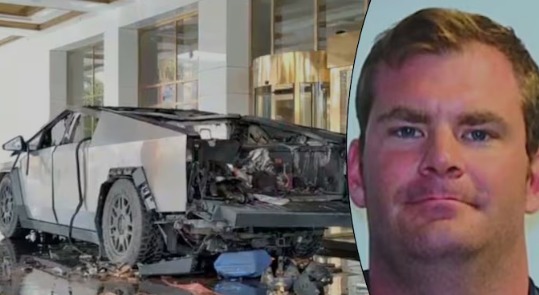Soldier Who Died by Suicide in Las Vegas Spoke of Pain, Trauma After Afghanistan
On New Year’s Day, a highly decorated Special Forces soldier, Matthew Livelsberger, tragically died by suicide in a Cybertruck explosion in Las Vegas. Livelsberger, 37, confided in a former girlfriend, Alicia Arritt, a former Army nurse, about the significant pain and exhaustion he experienced—key symptoms of traumatic brain injury (TBI) stemming from his military service.
A Distinguished Military Career
Livelsberger was a five-time recipient of the Bronze Star, including one awarded for valor under fire. His exemplary military record included numerous deployments and a recently born child. However, the mental and physical toll of his service weighed heavily on him, as he struggled with the psychological effects of combat, including the loss of fellow soldiers and the actions he had to take during his deployments.
Seeking Help
Despite his accolades, Livelsberger sought treatment for depression from the Army, revealing his vulnerability. He had a close relationship with Arritt, who witnessed firsthand the toll that TBI can take on veterans. They met in 2018 through a dating app while both were in Colorado Springs, where Arritt had treated many soldiers with severe combat injuries.
“I saw a lot of bad injuries, but the personality changes can happen later,” Arritt reflected on the challenges veterans face.
Through their relationship, Livelsberger expressed his struggles, sharing texts about his experiences in Afghanistan, including the toll of multiple concussions. He described his life as a “personal hell,” revealing the emotional burden he carried.
The Last Messages
Before his death, Livelsberger reached out to Arritt after years of limited contact, sending upbeat messages and videos of himself with the Cybertruck. However, Arritt sensed deeper symbolism in his actions, suggesting that the explosion was not impulsive but rather a thoughtful expression of his internal struggles.
“He wasn’t impulsive,” Arritt stated. “I don’t see him doing this impulsively, so my suspicion would be that he was probably thinking it out.”
Stigma and Mental Health
Arritt noted that Livelsberger exhibited signs of TBI as early as 2018, including withdrawal and depression. Despite her encouragement to seek help, he feared that doing so could jeopardize his military career due to the stigma surrounding mental health in the Special Forces community.
“There was a lot of stigma in his unit… mental health is seen as weakness,” she explained.
Official Response
The Pentagon has since turned over Livelsberger’s medical records to local law enforcement and emphasized the importance of mental health care for service members. Sabrina Singh, deputy press secretary at the Pentagon, urged troops facing challenges to seek support through available military resources.
“If you need help, if you feel that you need to seek any type of mental health treatment, or just to talk to someone — to seek the services that are available, either on base or off,” Singh said.
Conclusion
Matthew Livelsberger’s tragic death highlights the ongoing challenges faced by veterans, particularly concerning mental health and the stigma surrounding it. His story serves as a reminder of the importance of seeking help and the need for continued support for those who have served in combat.
